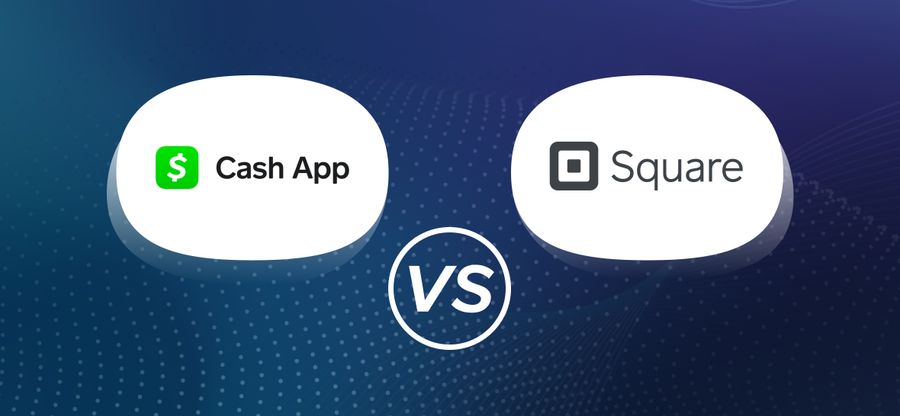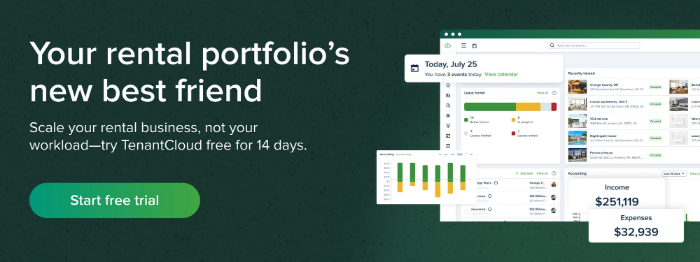When it comes to payment methods, landlords have their pick of the lot. With prominent players like Cash App and Square emerging onto the scene, it’s never been easier to collect rent with the touch of a button. There’s a downside, though—decision fatigue.
If you’ve done the homework and narrowed it down to Cash App and Square, you might be wondering which one is right for you. One way to find out is to download them both and give them a try… but that would mean spending your time downloading apps, entering your bank info, and sharing your details with your tenant, just to have to remove one down the road.
As a landlord, your time is valuable and limited.
So, let us do the work for you. We’ll go over the pros and cons of both Cash App and Square so you can make the best decision for your rental business:
Cash App Overview
Cash App is a peer-to-peer payment service that allows you to transfer cash immediately. Similar apps include PayPal, Venmo, and Zelle. Cash App is a digital wallet owned by Square, Inc. (Yes, the same company we’re comparing Cash App to in this blog. More on that later.)
These peer-focused services are a great option if you’re looking for a user-friendly way to pay friends or coworkers for lunch, gas money, etc. But as a landlord, Cash App may not be your best option for taking online rent payments. Since it’s not designed for business transactions, there’s no way to protect you or your tenant from errors such as sending funds to the wrong person. The convenience may be worth it, though, depending on your individual needs.
How it works: If you collect rent through Cash App, transactions take 1-3 business days. The landlord must then pay a fee (1.5%) to deposit the funds into their bank account. Tenants may like that they can connect their credit or debit card, or bank account of their choice.
Keep in mind that unless your accounts are verified with your identity, Cash App does have a payment limit of $250 in a seven-day period or $1,000 over a 30-day period, which may not be feasible for higher rent payments.

Features:
- User-Friendly Interface: Cash App is known for its simplicity, enabling users to send and receive money with just a few taps.
- Investment Options: Beyond basic transactions, Cash App allows users to invest in stocks and cryptocurrencies, offering a diversified financial platform.
- Instant Deposits: For a nominal fee, Cash App provides instant deposits to bank accounts, ensuring quick access to funds.
Pros:
- Convenience: The app's straightforward design makes it accessible to users of all tech levels.
- Versatility: With features like direct deposits, a linked debit card, and investment options, Cash App serves various financial needs.
Cons:
- No Late-Fee Capabilities: Because it is a peer-to-peer payment service, there is no option to set up late fees for late payments.
- Lack of Tracking: Cash App only sends notifications when money is received, not when payments have been sent, making it easier to send money to the wrong place.
- Customer Service Limitations: Users have reported challenges in reaching customer support, which could be a drawback for businesses requiring reliable assistance.
- Transaction Limits: Cash App imposes limits on sending and receiving amounts, which might not suit high-volume transactions typical in rental businesses.
Square Overview
Square is a payment processing and point-of-sale system popular across many businesses, from startups to major corporations. Square has no monthly fees and flat transaction fees, making it appealing to small or new rental businesses that don’t want to spend too much upfront.
Since Square’s strong points are that it can do card-present payments (swipe and go), it may not feel necessary to use Square if all your transactions are going to be done online. However, for those who would like to use Square for rent payments, there is a keyed payments option that allows you to enter card details manually for a 3.5% fee + $0.15.

Features:
- Diverse Payment Solutions: Square offers a range of payment options, including point-of-sale systems, online payments, and invoicing.
- Hardware Integration: Square provides physical hardware for businesses, facilitating in-person transactions with ease.
- Advanced Analytics: Square's dashboard offers insights into sales trends, inventory management, and customer data, aiding in strategic planning.
Pros:
- All-in-One Platform: Square's extensive suite of tools supports various aspects of business operations, from payments to analytics.
- Scalability: With solutions tailored for businesses of all sizes, Square can grow alongside your rental business.
Cons:
- Complexity: The breadth of features, while beneficial, might overwhelm landlords or property managers seeking a straightforward payment solution.
- Cost: Square's transaction fees and associated costs are higher compared to Cash App’s transaction fees.
Making the Right Choice
When selecting a payment solution for a rental business, consider the following factors:
- Transaction Volume: Evaluate whether the platform can handle your business's typical transaction volume efficiently.
- Customer Base: Consider the preferences and tech-savviness of your customers. A platform that aligns with their comfort level will enhance the user experience.
- Business Growth: Choose a platform that can scale with your business, accommodating future growth and expansion.
Conclusion
Both Cash App and Square offer valuable features for rental businesses, with Cash App focusing on simplicity and Square providing a more comprehensive ecosystem. Ultimately, the decision should be based on a careful assessment of your business needs, customer preferences, and the potential for growth. By embracing the right payment solution, rental business owners can ensure not only operational efficiency but also a seamless experience for their clients.







